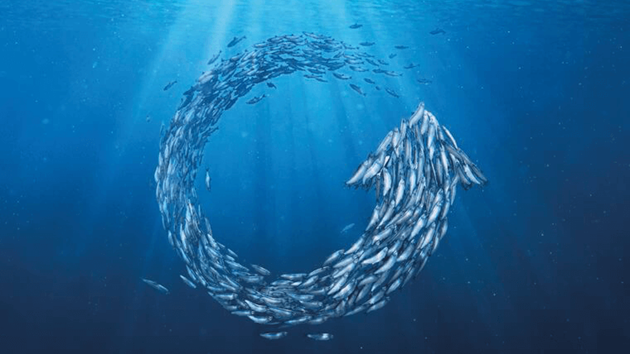Explore Te Kawa o Tangaroa teacher resources with particular relevance to the Social Science Curriculum:
Relevant for:
Level 4 - 8 Social Studies
Level 6 - 8 Geography
Level 7 - 8 Education for Sustainability
Lesson and Unit Plans
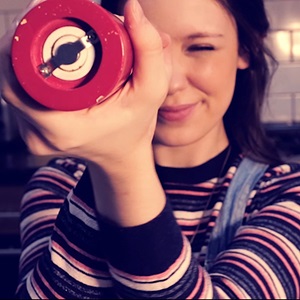
Overfishing and sustainable fishing
Unit Plan for teaching about overfishing and sustainable fishing. Includes: Importance of the sea; overfishing; sustainable fishing; the role of the Marine Stewardship Council; and the Blue Fish Tick label.
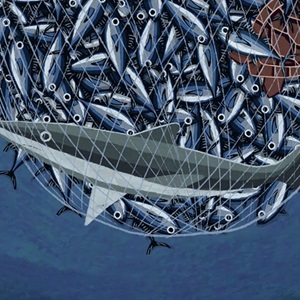
Fishing and protecting the marine environment
Unit Plan for Protecting the Marine Environment. Includes: fishing methods; environmental impacts of fishing both on other species (bycatch) and habitat; taiko / black petrel bycatch case study; new fishing methods that have improved environmental outcomes.
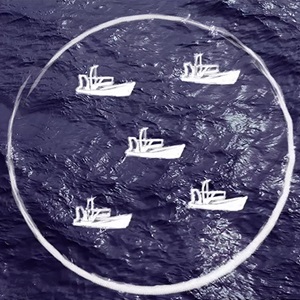
Fisheries management
Unit Plan for Fisheries Management. Includes: sustainable fisheries management; traditional Māori fisheries management tools and approaches (such as rāhui and kaitiakitanga); the Aotearoa New Zealand Quota Management System (QMS); the EEZ (Exclusive Economic Zone) and the International Law of the Sea.
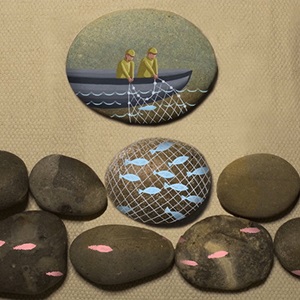
Seafood supply chain and illegal fishing
Unit Plan for Seafood Supply Chain and Illegal Fishing. Includes: jobs in the seafood industry; the seafood industry supply chain; illegal fishing!
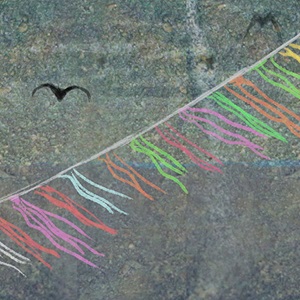
Fishing history, technology and innovation
Unit Planner for Fishing History. Includes: the history of fishing in Aotearoa New Zealand and the role of innovation and technology in sustainable fishing.
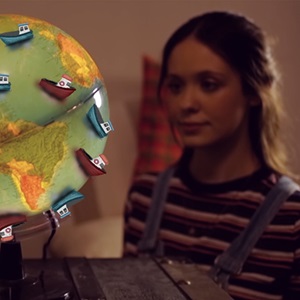
Ocean citizenship
Unit plan that includes: Ko moana te āu. Ko āu te moana - our connection with ocean; ocean sustainability and kaitiakitanga; taking action - both when fishing and around the ocean and as a consumer; a collaborative action project.
Activities and teacher resources
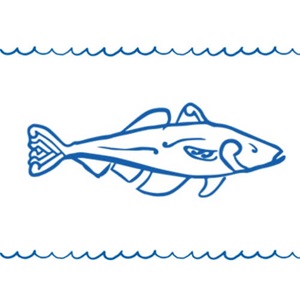
Kaitiakitanga worksheet
Learn a little about what kaitiakitanga means when spending time in and around the ocean. Answers some simple multi choice questions to see how well you read.
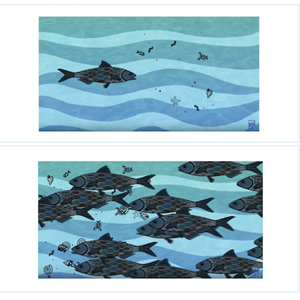
Overfishing fishing cards
A simple activity using cards and images to convey the meaning of overfishing.
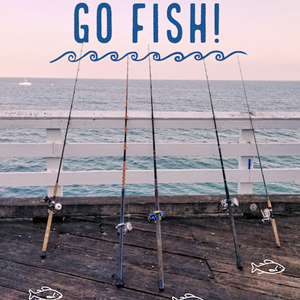
Go fish! Game
Can learners work in groups to find the maximum sustainable yield of a fish population? This game aims to help learners understand how human and physical processes interact to influence and change the marine environment. It demonstrates how human activity relies on the effective functioning of natural systems.
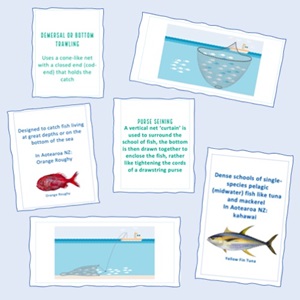
Fishing method cards
A fun way to learn about the different methods of fishing.
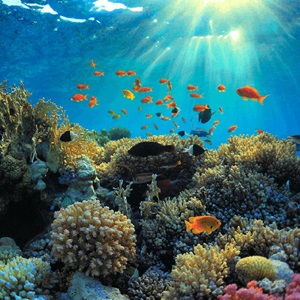
Oceans at risk factsheet with questions
Some important facts about current threats to the ocean and a set of multi choice questions to test how well you read!
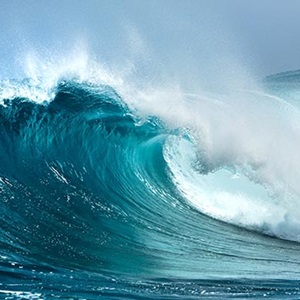
Importance of the Sea Ocean Connections Cards
Learners classify as true or false a range of statements about the importance of the sea.
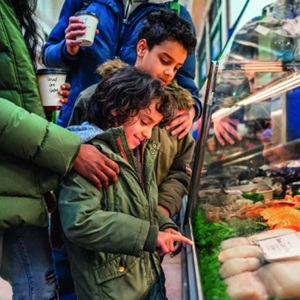
Supermarket survey
Visit your local supermarket and survey for the seafood on offer there.
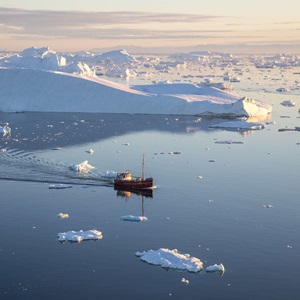
Aspects of sustainability
Investigate the what it means to live in way that supports social, economic, environmental and cultural sustainability for the oceans. For older learners.
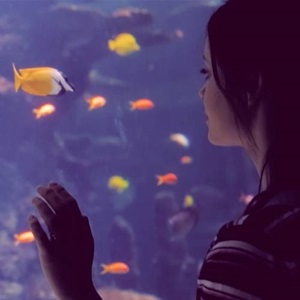
Value statement cards
Use these cards to help form and clarify your own viewpoint on a range of ocean related issues.

Bycatch in a bucket (game)
Play this simple game in your classroom to gain understanding about how hard it can be to catch your target fish and not bycatch!
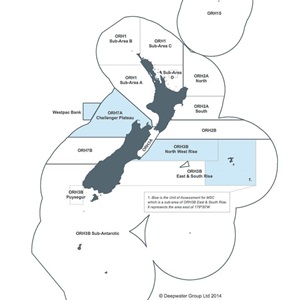
QMS worksheet
Use this worksheet to understand more about how we manage fisheries in Aotearoa New Zealand using the QMS (Quota Management System).

Bycatch field trip
Try our no hard field trip and catch fish using the bait catcher method. Assess your fishing method for its ability to catch the target species and bycatch.
Sign up for teacher updates
Each quarter, we'll feature the latest education resources, upcoming calendar dates, competitions and the very best ocean-related stories.


